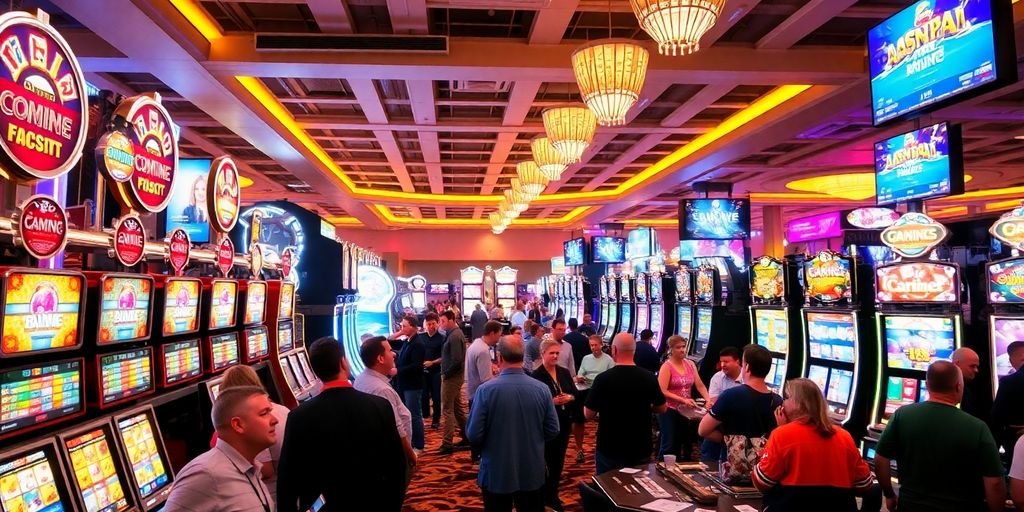Australia is facing a pivotal moment in its gambling landscape as the government considers a ban on gambling advertisements. This decision comes in response to rising public concern over the normalization of gambling, particularly among youth, and the potential harm it poses to society. Advocacy groups and political opponents are urging the government to take decisive action, while industry stakeholders warn of the economic implications of such a ban.
Key Takeaways
- The Australian government is reconsidering a proposed ban on gambling advertisements.
- Critics argue that gambling ads contribute to addiction and normalize gambling among youth.
- Industry representatives warn that a ban could jeopardize funding for sports and media.
- Public support for a ban is high, with recent polls indicating 70% of Australians favor restrictions on gambling ads.
Background on Gambling in Australia
Australia has long been recognized as one of the world’s largest gambling markets, with citizens spending approximately A$25 billion annually on legal wagers. The normalization of gambling is deeply embedded in Australian culture, often intertwined with sports and entertainment. This cultural acceptance has raised alarms about the impact of gambling advertising, particularly on younger audiences.
Government’s Initial Proposal and Reversal
Earlier this year, the government proposed a comprehensive ban on gambling advertisements across all media platforms, including television, radio, and online. This initiative followed a parliamentary inquiry that highlighted the need for reforms to protect vulnerable populations from gambling-related harm. However, after consultations with industry leaders, Prime Minister Anthony Albanese announced a shift in strategy, opting instead for a limited approach that would allow two gambling ads per hour on television until 10 PM, with additional restrictions around live sporting events.
Industry Influence and Economic Concerns
The decision to limit rather than ban gambling advertisements has been met with mixed reactions. Industry representatives argue that gambling revenue is crucial for funding sports and media operations. Major sports leagues, such as the AFL and NRL, have expressed concerns that a ban could lead to increased ticket prices and reduced funding for community programs. Critics, however, argue that prioritizing corporate interests over public health is a dangerous precedent.
Public and Political Reaction
The government’s reversal has sparked outrage among advocacy groups and opposition leaders. Many view the decision as a betrayal of communities affected by gambling addiction. Carol Bennett, CEO of the Alliance for Gambling Reform, stated that the government has missed an opportunity to address a significant public health issue. Polls indicate that a substantial majority of Australians support a ban on gambling ads, suggesting a disconnect between public sentiment and government action.
Future Implications
As the debate continues, the government faces pressure to balance economic interests with social responsibility. The potential for electoral backlash looms, as voters increasingly demand stronger regulations on gambling advertising. With the next election on the horizon, the government’s handling of this issue could significantly influence public perception and voter turnout.
In conclusion, Australia’s approach to gambling advertising is at a crossroads. The decision to limit rather than ban gambling ads reflects the complex interplay between public health concerns and economic realities. As the government navigates this contentious issue, the voices of advocacy groups and the public will play a crucial role in shaping the future of gambling in Australia.
Sources
- Australian Government Faces Backlash Over Reversal on Gambling Ad Ban, Gambling Industry News.
- Australian Gambling Ads Ban Stalls Once Again, Gambling Industry News.
- Australia – gambling capital of the world, BBC.

